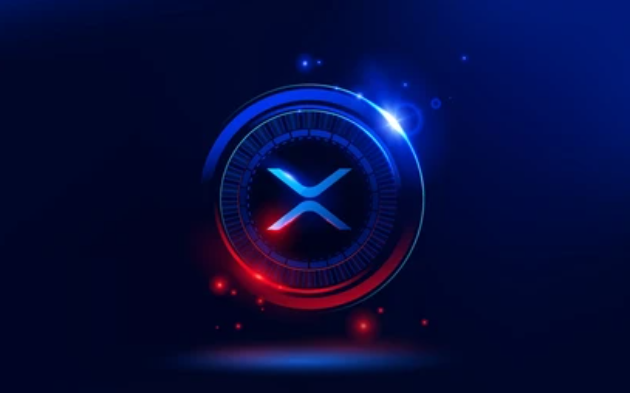XRP Price Battles $0.55 Resistance: Will Ripple Break Through or Pull Back?
Current Market Situation
XRP, the digital currency from Ripple Labs, is facing heavy selling pressure. It has been on a downward trend recently, struggling to break past the critical price point of $0.55 since September 7. Although there have been some attempts to push the price higher, they haven’t been strong enough. Unless buyers collaborate to push XRP above this level, a further price drop seems likely in the coming days.
Currently, XRP has a minor gain of 1% but remains down 3% for the week. Despite increasing trading volume, it hasn’t reached the key $1 billion mark, indicating the need for more activity to break out of its downward trend.
Technical Analysis of XRP: Key Levels to Watch
The XRP/USD pair is showing a bearish trend, having dropped nearly 20% from its monthly highs. This indicates a challenging environment for the cryptocurrency. Unless significant changes occur, the downward trend is likely to continue.
Resistance at $0.55
XRP is trading below the strong resistance level of $0.55, a crucial point in the market. If it fails to break this level, sellers could target the next level at $0.50, matching the low from September 7. A further drop below $0.45 could lead to even more selling pressure.
Potential Breakout Above $0.66
On the other hand, breaking above $0.66 could signal a new upward trend. Traders and investors should closely monitor these key levels as they will heavily influence XRP’s future price movements.
Factors Impacting XRP Price
Several technical and fundamental factors are influencing XRP’s price:
- Ripple’s Initiatives: Ripple is supporting blockchain research through initiatives like the University Blockchain Research Initiative (UBRI). The ongoing event in Switzerland brings together experts to discuss advancements that could enhance the XRP Ledger.
- Tokenization on the XRP Ledger: Ripple is actively improving tokenization on the ledger, which could attract more users and boost XRP’s long-term value.
- Overall Market Sentiment: XRP’s price is also influenced by the broader cryptocurrency market. If major coins like BTC and ETH rise, XRP could follow suit. However, the cautious sentiment in the crypto market due to regulatory news and economic factors plays a significant role.
XRP Volatility and Trading Strategy
Traders should pay attention to the current market conditions and support/resistance levels. If XRP drops below $0.50, it could reach $0.45, signaling a strong downward trend. On the contrary, breaking above $0.66 could lead to a bullish breakout.
- Short Selling: If XRP falls below $0.45, traders may consider short-selling as a strategy to capitalize on the downtrend.
- Buying Opportunities: If XRP breaks above $0.66, aggressive traders might look for buying opportunities, as this could signal the beginning of a new upward trend.
Institutional Interest in XRP: A Positive Sign?
Despite the short-term bearish outlook, growing institutional interest in XRP is a positive long-term signal. Ripple’s partnerships with global banks and financial institutions are creating demand for XRP as a bridge currency for cross-border payments and other innovative financial products.
Additionally, the increasing adoption of blockchain technology in various industries could further strengthen XRP’s position in the market.
Long-Term Outlook for XRP Holders
Long-term XRP holders should focus on Ripple’s continued development and the expanding use cases for the XRP Ledger. Success in improving tokenization and forming more partnerships could lead to higher demand for XRP and better price performance over time.
However, investors should remain cautious and stay informed about potential risks like regulatory changes and market volatility.
Ripple vs. SEC Legal Battle: A Major Influence
One of the biggest factors affecting XRP’s price is the ongoing legal battle between Ripple Labs and the U.S. Securities and Exchange Commission (SEC). The lawsuit will determine whether XRP is classified as a security, creating significant uncertainty for investors.
- Ripple Wins: A positive outcome for Ripple could boost investor confidence and drive XRP’s price higher.
- Ripple Loses: A negative outcome could lead to market volatility, possibly forcing Ripple to move its operations to more crypto-friendly countries.
XRP and Competition
XRP faces competition from other cryptocurrencies such as Stellar (XLM) and stablecoins like USDC and USDT, which are increasingly popular for cross-border transactions due to their price stability.
Ripple must continue to innovate and form partnerships to remain competitive in this space.
Cheap Remote Crypto Mining for you – Click Here
Managing Price Volatility: Strategies for Traders and Investors
Balancing technical analysis with fundamental news is key for traders and investors. XRP’s price can be highly volatile, so understanding support/resistance levels and staying informed about market trends is crucial.
Diversifying investments is also a wise strategy. Instead of investing solely in XRP, traders should consider spreading their investments across other cryptocurrencies to manage risk and take advantage of growth opportunities.
Conclusion: Navigating the Uncertain XRP Market
XRP is facing significant resistance at $0.55, and its short-term outlook appears bearish. Traders should closely monitor key support and resistance levels to make informed decisions. Ripple’s ongoing initiatives, the outcome of the legal case with the SEC, and market conditions will all play pivotal roles in shaping XRP’s future.
For traders and investors willing to navigate the volatility, XRP presents both risks and opportunities. Staying informed and adaptable will be essential in making the most of these market dynamics.


